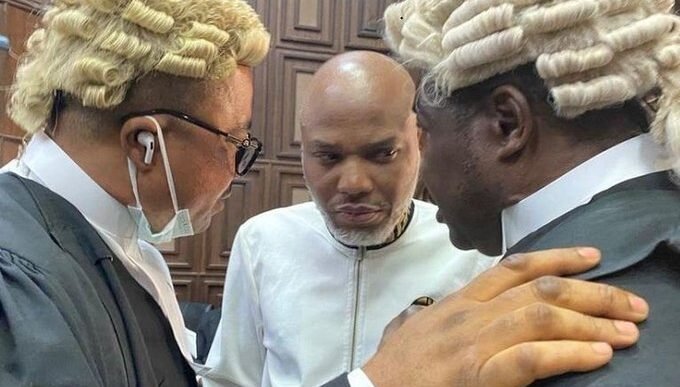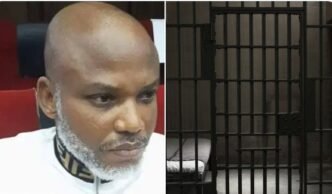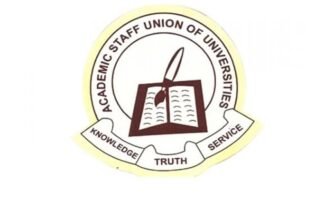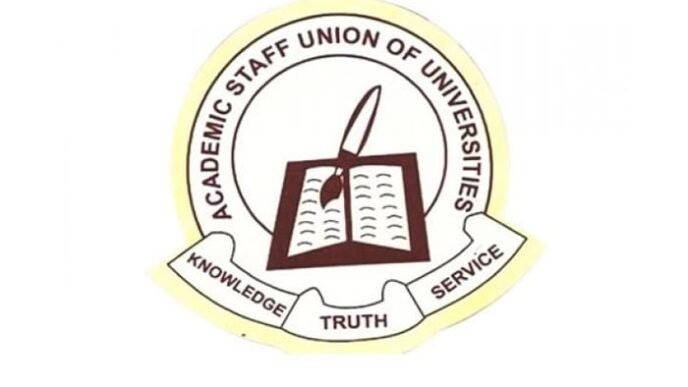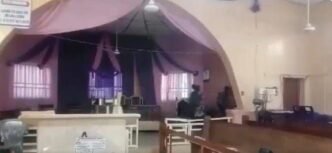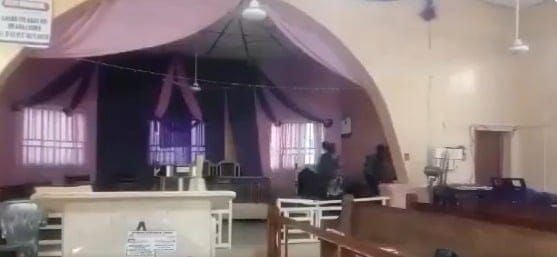Abuja, Nigeria — The nationwide strike by resident doctors remains in full force, with the Nigerian Association of Resident Doctors (NARD) reaffirming it will only end when its 19-point minimum demands are fully met. The association has dismissed recent assertions by the Ministry of Labour that a high percentage of their grievances have already been addressed, calling such claims misleading.
What the Minister Claimed — and Why Doctors Disagree
On November 19, the Minister of Labour reportedly urged NARD to suspend its industrial action, declaring that 19 out of 20 demands have been “addressed.” However, NARD immediately pushed back, insisting that not a single one of its core demands has been fully and verifiably met. The group described the government’s communication as a gross distortion of the negotiation’s reality.
According to NARD, the so-called progress hailed by government officials largely amounts to “unfulfilled promises, uncommenced payments and newly formed committees.” Rather than real, concrete action, the association says what the ministry is presenting as “solutions” are mere bureaucratic gestures.
Strike Remains Indefinite
NARD’s leadership has made its position crystal clear: the strike is indefinite. In a recent meeting of its National Executive Council (NEC), the doctors reiterated that their industrial action, which started on November 1, will persist until there’s genuine, verifiable implementation of their core demands.
According to Dr. Muhammad Suleiman, NARD president, only two of the 19 demands—namely, the 25–35 percent salary review under CONMESS (Consolidated Medical Salary Structure) and the 2024 accoutrement allowance—are being “addressed.” Meanwhile, 17 others remain unfulfilled.
The doctors argue strongly that they will not accept symbolic or partial measures. Their demands, they say, reflect the bare minimum required for dignified, sustainable medical practice in Nigeria.
What Are the 19 Demands?
The list of demands issued by NARD covers a broad range of financial, institutional, and welfare-related issues:
- Immediate payment of outstanding CONMESS arrears
- Payment of 2024 accoutrement allowance
- Reinstatement of five disengaged resident doctors at the Federal Teaching Hospital Lokoja, with full compensation
- Implementation of a humane working-hours policy in line with international best practices
- One‑for‑one replacement of doctors leaving the system (to address shortages)
- Payment of specialist allowances
- Infrastructure upgrades and maintenance in medical training and service institutions
- Inclusion of medical and dental house officers into the civil service scheme
- Correction of entry-level placements for doctors, and payment of the resulting arrears
- Decentralisation of promotion processes
- Immediate payment of promotion arrears
- Reversal of creating consultant positions for non‑medical personnel
- Regularisation of locum staff in line with public service rules
- Uniform implementation of CONMESS across all institutions (federal, state, private)
- Finalisation of the overdue review of CONMESS and related allowances via the Collective Bargaining Agreement Committee
- Enforcement of relativity between CONMESS and other salary structures
- Special pension benefits previously agreed upon
- Transparent reconciliation of allowance omissions
- A binding process for implementation with clear timelines and accountability
These demands are not new: NARD says they have raised them repeatedly in past negotiations, but are yet to see meaningful, verifiable action.
Major Allegations: Arrears and Contract Violations
One of NARD’s most serious allegations is that the government owes roughly ₦38 billion in salary arrears to health workers, including resident doctors. The association says these arrears stretch back multiple years and include professional allowances, corrected salary tables, and other benefits.
On top of that, NARD accuses the government of failing to maintain agreed-upon working conditions. The doctors argue that the government’s infrequent promises and “committee after committee” approach have become a recurring pattern—one that stalls real change and prolongs the strike.
Why the Doctors Are Holding Their Ground
NARD insists its strike is not for show. Its leadership argues:
- Transparency and Accountability: Past negotiations ended in statements and memoranda of understanding (MOUs) that were never sufficiently implemented. The doctors say they want more than mere words—they demand concrete, verifiable deliverables.
- Unbroken Commitment: Despite public pressure, NARD says its resolve remains unshaken. The doctors have emphasized they will not back down simply because the labour ministry calls for a suspension of strike action.
- Patient Safety and Sustainability: Some of their demands, such as working-hours reform and improved staffing, are directly tied to patient care and physician well-being. NARD frames their strike as not just a pay issue, but a fundamental call for a more sustainable healthcare system.
- Fair Treatment: The reinstatement of the five doctors from Lokoja remains a red line. NARD describes their disengagement as wrongful, and insists any resolution must include compensation and reinstatement.
Government Stance: “Progress Made,” but Not Enough
While NARD rejects the ministry’s claims of progress, the government maintains that it has made headway on key items. Labour officials say efforts are under way to reconcile payments via payroll systems, especially for salary upgrades and allowance payments.
The ministry says lists of arrears from hospitals across the country are being compiled and will be submitted to the budget office for appropriation. But NARD argues that these compilations, without immediate payment and action, fall short of what was promised—and what is needed.
Risks, Impact, and Stakes
- Healthcare Disruption: The strike has caused significant disruptions in public hospitals, with many institutions operating skeletal services or suspending critical operations.
- Public Pressure: Patients and families are increasingly bearing the burden, with delayed treatments and uncertainty around access to care.
- Political Pressure: The government is under growing scrutiny to bring resolution, especially as public frustrations mount and the national health system suffers.
- Negotiation Fatigue: Both sides risk negotiation fatigue, with NARD worried that another cycle of committee formation could lead to nothing, and the government worried about escalating economic costs.
What NARD Wants Now
For NARD, the pathway to ending the strike is clear: the government must go beyond statements and committee formations. The doctors are calling for:
- Immediate financial disbursements — not just promises or planned reconciliations.
- Clear timelines — for payment of arrears, reinstatements, and salary reviews.
- Accountability mechanisms — to ensure what is agreed is actually delivered.
- Meaningful engagement — not just procedural talks but genuine negotiations that result in action.
They have reaffirmed their openness to dialogue — but only if it leads to real, verifiable change.
The Stakes for Nigeria’s Health Sector
This standoff underscores deeper systemic issues in Nigeria’s healthcare system: chronic underfunding, poor working conditions, and a lack of institutional accountability. If the strike continues, the ramifications could extend far beyond today’s hospitals:
- Human cost: Delays and disruptions in care can translate to avoidable morbidity and mortality.
- Brain drain: Prolonged neglect of doctors’ welfare could fuel further emigration, worsening brain drain in the health sector.
- Public trust: Repeated cycles of strike and unfulfilled promises erode public trust in both the government and health institutions.
- Budget priorities: Resolving this strike could force deeper discussions on how the government prioritizes health funding and its long-term commitment to medical training.
Conclusion
The resident doctors’ strike continues to be a flashpoint in Nigeria’s health sector. With NARD firmly holding its ground, the ball is now in the government’s court: will the Labour Ministry and other federal agencies move beyond press statements to deliver on the promise of meaningful reform? Or will the strike drag on, deepening the crisis in public health delivery?
At stake is not just the resolution of a labour dispute, but the integrity of Nigeria’s healthcare system, and the well‑being of millions of patients who rely on public hospitals. For now, NARD’s message is unambiguous: no backdown, no compromise below their minimum demands.




